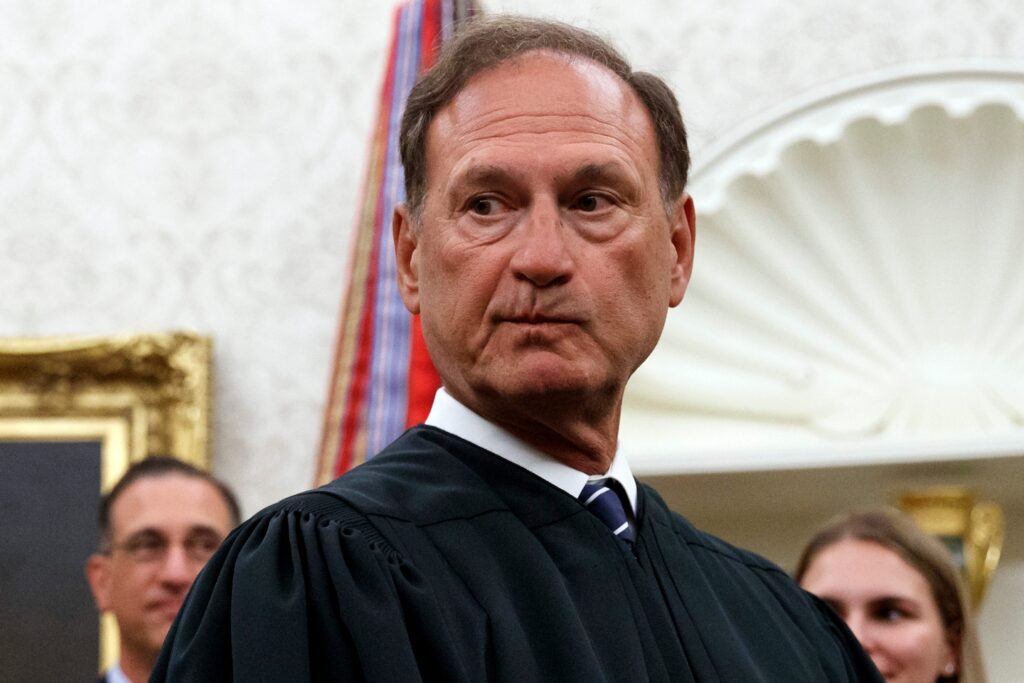In the South, when people say “bless your heart,” they're not praying to God on your behalf. It's a sarcastic expression toward people who are deemed too insensitive to understand. It can also have a sympathetic connotation, used as a joke when someone tries sincerely but keeps failing — a beginner whose cross-stitch is always too tight, or a new driver who has trouble parallel parking or staying in the right lane. In these cases, it's not used as an insult, but as an acknowledgment that divine intervention may be necessary.
In North Carolina, the judicial version of “blessings” is called a “prayer for judgment” and is a uniquely state legal measure. It gives judges the power to suspend sentences on issues such as traffic violations in exchange for better behavior. It's a “get out of jail free” card given to drivers by the state government. It's also a way to show favor to the public, who are also voters in judicial elections. Think of it as a communion of church and state, where God's providence smiles on judges and voters alike.
 Follow this authorTheodore R. Johnson's opinion
Follow this authorTheodore R. Johnson's opinion
Based on recent secretly recorded remarks, Supreme Court Justice Samuel A. Alito Jr. sees the balance differently. He agreed with the need to return the country to a “godly place,” as argued by a liberal filmmaker posing as a religious conservative. The justice's wife was also recorded talking about plans for an impending flag fight with a neighbor who flies a gay pride flag once her husband is “free from this nonsense,” i.e., finished serving on the nation's highest court. The news broke just days after reports surfaced that the Alitos had displayed several symbols related to the January 6, 2021, attack on the Capitol. In their Virginia home, they displayed an upside-down American flag signifying suffering. At their New Jersey vacation spot, they displayed a flag that “appeals to heaven.”
Despite declining church attendance, the United States is a religious nation. People of all faiths practice their faith here, a constitutional right protected by the First Amendment. More than 80% of Americans describe themselves as religious or spiritual. Ideas of divine providence and a promised land are woven into the founding mythology. The country has been improved as people who have been excluded because of their religion, race, sexual orientation, sex, class or national origin have won equal rights in the courts on appeal, based on both constitutional and faith-based principles.
This is America. There's nothing wrong with a praying judge. But the long arm of the law is not the hand of God. That's why Justice Alito's words and signs demanded greater scrutiny. Christian nationalist symbols were prominent in the storming of the Capitol, held up by people who believe the “stolen” 2020 presidential election was against God's will. Divided members of Congress believe that national misfortunes and natural events are punishment for a sinful republic. Elected and appointed officials are constitutionally entitled to this view, but they have no right to make us all believers.
Americans, especially those who have been excluded from the “great and godly” United States that MAGA nationalists are suggesting will return, are right to ask where Justice Alito sees the line between religion and state, and who answers his prayers for justice. Such concerns threaten the legitimacy of the Supreme Court, which is the subject of new and fierce debate. Religion appears to have been a central influence when the Supreme Court struck down the constitutional right to abortion, and before that, when it allowed contraception to be excluded from corporate health insurance plans. Justice Clarence Thomas, whose wife lobbied White House officials and lawmakers to block Joe Biden's inauguration, has suggested that the Supreme Court was improper in setting constitutional protections for same-sex marriage and contraception. With such questions swirling, Chief Justice John G. Roberts Jr. has no choice but to defend the Court with saint-like devotion.
Separation of church and state is a concept older than the United States. The idea spread among American colonists who were dissatisfied with the British Empire's combination of monarchy and theocracy, and many dreams grew alongside the new nation's desire for independence. But decades later, in the Supreme Court's most infamous decision, Dred Scott v. Sanford, the justices ruled that the laws of nature, nature's God, and the blessings of liberty do not apply to black people, who are “far inferior in the measure of created beings.” With such a track record on race, democracy, and our founding documents, why would we want a judicial system that petitions God on our behalf?
Nearly three in four Americans do not believe that God’s Providence has declared the United States to be a promised land for Christians to set an example for the world. Our Constitution, as amended, has proven durable and sound enough to create a more equal society. Many pray for God’s protection and the grace of judges when they break the law, but they understand the difference between God and government. Returning America to a holy and great place means returning to a previous Constitution in which the courts unjustly upheld restrictive rights for many. This is a sign that our court system is off track. And that the country is heading in the wrong direction.



